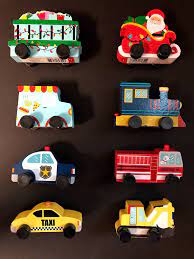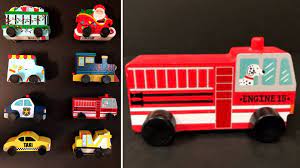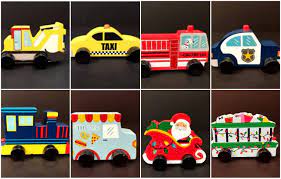
A Deep Dive into Target Recalls Wooden Toys, Their Implications, and the Broader Issue of Toy Safety
By Kyrt Smith Staff Writer
In a move that underscores the paramount importance of child safety, retail giant Target has recently announced a recall of a range of wooden toys due to concerns over potential hazards. This decision has sparked discussions about the responsibilities of toy manufacturers and retailers in ensuring the safety of children’s playthings and the rigorous quality control measures needed to prevent such incidents.
The Recall Announcement
Target’s announcement of the wooden toy recall sent shockwaves through the toy industry and drew attention from concerned parents nationwide. The recall affects a variety of wooden toys sold under different brand names and involves an array of products, including puzzles, building blocks, and pull-along toys. According to Target, the decision was made following reports of potential choking hazards posed by small, detachable components on these toys.
Safety First: The Motivation Behind the Recall

Child safety has always been a top priority for companies in the toy industry, and recalls like this one are initiated when potential hazards come to light. In this case, the choking hazard was identified during routine product testing, leading to the immediate action of recalling the affected toys.
Consumer Reaction
The recall has prompted mixed reactions from consumers. While many parents and child safety advocates commend Target for its proactive approach in addressing the issue, others have expressed frustration and disappointment over the fact that such hazards made it to the market in the first place. This incident highlights the need for stricter safety regulations and quality control measures within the toy industry.
The Broader Issue of Toy Safety

The recall of these wooden toys brings to the forefront a broader issue concerning the safety of toys in general. While toys are meant to bring joy and stimulate a child’s development, they can also pose risks if not properly designed, manufactured, and tested.
Stringent Safety Regulations
In the United States, the Consumer Product Safety Commission (CPSC) sets stringent safety regulations and guidelines for toy manufacturers and importers. These regulations cover various aspects of toy safety, including lead content, flammability, small parts, and labeling requirements. Manufacturers and retailers are legally obligated to adhere to these standards, and failure to do so can result in recalls, penalties, and damage to a company’s reputation.
The Role of Manufacturers and Retailers

Manufacturers and retailers share the responsibility of ensuring that toys are safe for children. Manufacturers must follow strict safety standards during the design and production phases, while retailers are responsible for conducting thorough product testing and inspections to identify potential hazards before items reach store shelves.
Consumer Vigilance
Parents and caregivers also play a critical role in ensuring toy safety. They should carefully read and follow age-appropriate recommendations on toy labels, regularly inspect toys for signs of wear and tear, and promptly remove any broken or damaged items from a child’s play area. Additionally, reporting safety concerns to the CPSC is essential for identifying potential hazards in the marketplace.
Conclusion: Target Recalls Wooden Toys

The recall of wooden toys by Target serves as a stark reminder of the importance of vigilance in the toy industry, where child safety is paramount. While recalls can be concerning, they also demonstrate that the system of checks and balances, including strict regulations and responsible corporate actions, is in place to protect children from potentially harmful products.
As consumers, parents, and retailers continue to grapple with the aftermath of this recall, the incident underscores the need for ongoing diligence in ensuring that toys are not only sources of joy but also beacons of safety for our children. It is a collective responsibility to maintain the integrity of the toy industry and to prioritize the well-being of the youngest members of our society.






Leave a Reply